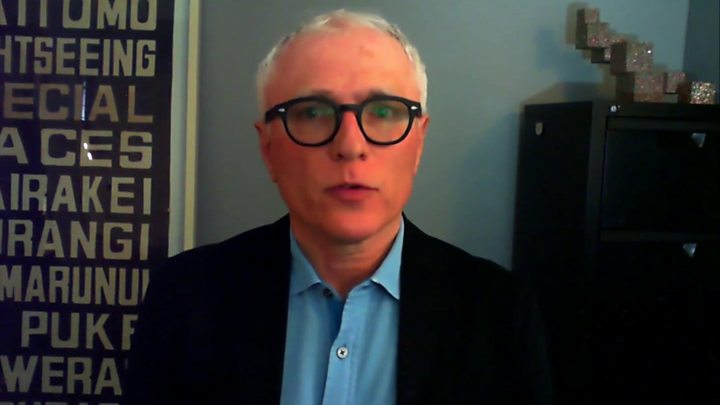 Image copyright
Reuters
Image copyright
Reuters
The prime minister of New Zealand, Jacinda Ardern, has postponed the country's general election by a month amid a spike in coronavirus cases.
The vote was due to take place on 19 September but will now be held on 17 October instead.
Ms Ardern said on Monday that the new date would allow parties "to plan around the range of circumstances we will be campaigning under".
Earlier this week, the country's largest city went back into lockdown.
"This decision gives all parties time over the next nine weeks to campaign and the Electoral Commission enough time to ensure an election can go ahead," Ms Ardern said, adding that she had "absolutely no intention" of allowing any further delays to the vote.
The opposition National Party has argued the election should be delayed as restrictions on campaigning mean Ms Ardern had an unfair advantage.
Restrictions were imposed on Auckland on Wednesday after a number of new infections were identified in the city. A total of 49 cases linked to one cluster had been found by Sunday.
The outbreak was initially traced back to members of one family, although Ms Ardern later said that subsequent contact-tracing had found an earlier case involving a shop worker who became sick on 31 July.
A health official who knew the family told the New Zealand Herald that the family were "shell-shocked" and "a little embarrassed that it had happened to them".
The announcement that new cases had been discovered shocked the country, which had recorded no locally transmitted cases for more than three months.

Media playback is unsupported on your device
There are four "alert levels" in New Zealand, and Auckland has been on Level 3 since the new measures were announced. The rest of the country is on Level 2.
Before the new cluster was identified, the government had lifted almost all of its lockdown restrictions, which were first imposed in March.
An early lockdown, tough border restrictions, effective health messaging and an aggressive test-and-trace programme had all been credited with virtually eliminating the virus in the country.

 5 years ago
500
5 years ago
500 

